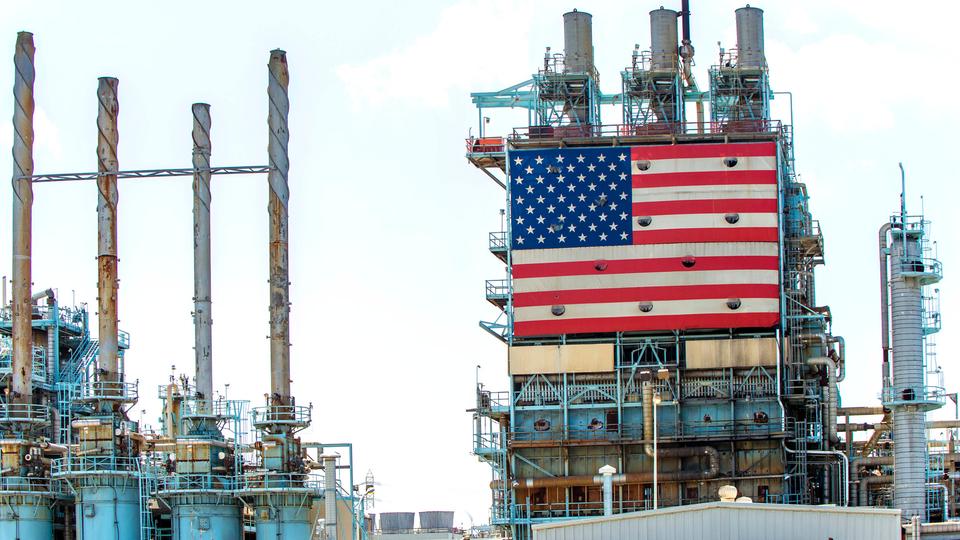Why US refineries convert to biodiesel

What happens in the US refineries
Oil refineries are shutting down processing plants in Asia and North America for good, and plants in Europe could be next due to the uncertain prospects of a recovery in fuel demand following the coronavirus pandemic that reduced consumption. “The pandemic initially reduced global fuel demand by 30% and refineries temporarily shut down plants. But consumption has not returned to pre-pandemic levels and the reduction in travel could be destined to remain so, leading to the possibility that the plants could close permanently, ”reads Reuters .
REFINERIES IN USA INTERESTED IN BIOFUELS
An anticipation of what could happen in the future, however, comes from the United States where California's emission policies are encouraging the creation of biofuels.
"California's clean fuel targets are triggering changes at large US oil refineries that are gearing up to produce a form of diesel fuel made from discarded cooking oil from restaurants and melted animal fats in slaughterhouses," the report reads. Financial Times.
WHO IS EXPLORING THE NEW POSSIBILITY
Marathon Petroleum, Phillips 66 and HollyFrontier are among the refineries that are exploring or pursuing projects to produce “renewable diesel,” which can replace petroleum-based diesel in trucks and buses and be produced at the same plants.
HOW IT WORKS IN CALIFORNIA
That way, the FT notes, refineries could have the opportunity to expand. “The incentive is the stricter emissions policies in California. The state standard on low-carbon fuels was designed to accelerate the transition to transport with lower greenhouse gas emissions, the main driving force behind climate change. The low carbon program awards credits to fuel suppliers whose emissions are lower than a state benchmark. Suppliers of low-carbon fuels, such as petroleum-based diesel, must purchase these credits to comply with state law ”.
As the benchmark tightened, the price of credits climbed to nearly $ 200 per tonne of carbon dioxide, prompting more oil refiners to expand into fuels that receive carbon credits, says Ft. a related fuel, biodiesel, typically earns more credits per gallon than other biofuels. Last year California used a total of 830 million gallons of both types of diesel, which is 22% of the state's total diesel market, according to the National Biodiesel Board.
PHILLIPS 66 REFINERY IN RODEO, CALIFORNIA CANDIDATED TO BE THE WORLD'S LARGEST RENEWABLE FUEL PLANT
The Phillips 66 refinery in Rodeo, Calif., Could become "the largest renewable fuel plant in the world," replacing petroleum with used cooking oil, grease and soybean oil, the company said. The plant will be able to supply 800 million gallons per year of biofuels, mainly renewable diesel. "Over time we have seen a decline in margins and a rather poor business environment for this asset," said Nik Weinberg-Lynn, head of renewable energy projects at Phillips 66 refinery. Making this move allows us to operate in this community for a long period of time ”.
Weinberg-Lynn admitted that the conversion of the Rodeo refinery to biofuels will help Phillips 66 offset the financial burden of carbon credits at the company's Los Angeles oil refinery, which is expected to continue operating with traditional crude.
OTHER COMPANIES AFFECTED: MARATHON, HOLLYFRONTIER, VALERO ENERGY
California's fuel policy is also having an impact outside the state. Marathon, the largest oil refinery in the United States, is converting an oil refinery in Dickinson, North Dakota, to produce 184 million gallons a year of renewable corn diesel and soybean oil for sale in California. Last month it said it will close its oil refinery in Martinez, Calif., And explore the possibility of converting it to produce renewable diesel.
HollyFrontier called California the "key driver of demand" for biofuels as it aims to produce more than 200 million gallons per year of renewable diesel. Last month it closed its oil refinery in Cheyenne, Wyoming, with plans to convert it to renewable diesel production, and is adding a renewable diesel plant alongside its oil refinery in Artesia, New Mexico.
Other refiners involved in renewable diesel production include Valero Energy, whose Diamond Green Diesel joint venture with fat recycler Darling Ingredients is more than doubling the size of a Louisiana plant to 675 million gallons per year and is exploring the construction of a new plant in Port Arthur, Texas.
US REFINERIES DO NOT ABDUCE OIL
However, US refineries are not abandoning oil. The trade association has supported the Trump administration's recent reduction in vehicle fuel economy standards, which the Environmental Protection Agency has estimated will ensure an annual increase in gasoline consumption of 15 billion gallons by 2050 compared to to the previous regulation ”, highlighted Ft.
HOW MUCH
“The wholesale price of conventional wholesale diesel is about $ 1.15 per gallon in California. Sellers of renewable diesel can receive an extra income of approximately $ 3.50 per gallon from California low-carbon fuel credits, a separate credit under the National Renewable Fuels Program, and a federal tax credit for $ 1-a-gallon mixers, said Gary Greenstein, a refining consultant at S&P Global Platts. The credits are used to offset the high cost of producing renewable diesel.
This is a machine translation from Italian language of a post published on Start Magazine at the URL https://www.startmag.it/energia/perche-le-raffinerie-usa-si-convertono-al-biodiesel/ on Sat, 19 Sep 2020 05:30:00 +0000.
